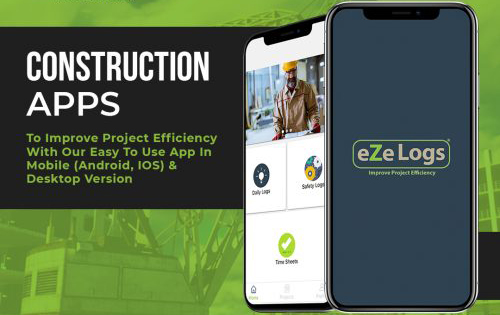The construction industry is one of the oldest and most important industries in the world. It is responsible for the creation of the built environment, from homes and offices to bridges and roads. In recent years, the industry has seen a shift towards the use of portfolio project management tools to help streamline processes and improve efficiency.

Building Better: How Portfolio Project Management Tools are Changing the Construction Industry explores the impact of these tools on the industry, and how they are helping to revolutionize the way projects are managed. This book examines the various tools available, their benefits, and how they can be used to improve project management. It also looks at the challenges that come with implementing these tools, and how they can be overcome. Finally, it looks at the future of the industry and how portfolio project management tools will continue to shape it.
The Challenges of Construction Project Management
Construction project management is a complex and challenging field. It requires a great deal of skill, knowledge, and experience to successfully manage a construction project from start to finish.
The first challenge of construction project management is the complexity of the project itself. Construction projects involve a variety of stakeholders, including architects, engineers, contractors, subcontractors, suppliers, and clients. Each of these stakeholders has their own set of goals and objectives, and it is the responsibility of the project manager to ensure that all of these goals are met.

The second challenge of construction project management is the need to manage a variety of tasks and activities. Construction projects involve a wide range of activities, from planning and design to procurement and construction. The project manager must be able to coordinate and manage all of these activities in order to ensure that the project is completed on time and within budget.
The third challenge of construction project management is the need to manage risks. Construction projects involve a variety of risks, from financial risks to safety risks. The project manager must be able to identify and manage these risks in order to ensure that the project is completed successfully.
Finally, the fourth challenge of construction project management is the need to manage change. Construction projects are constantly evolving, and the project manager must be able to anticipate and manage changes in order to ensure that the project is completed on time and within budget.
Construction project management is a complex and challenging field. However, with the right skills, knowledge, and experience, it is possible to successfully manage a construction project from start to finish.
Portfolio Project Management Tools: An Overview
Portfolio project management tools are essential for any organization that needs to manage multiple projects at once. These tools help to streamline the process of managing projects, ensuring that all tasks are completed on time and within budget.
Portfolio project management tools provide a comprehensive view of all projects, allowing users to easily track progress and identify any potential issues. They also provide a centralized platform for communication and collaboration, allowing teams to work together more efficiently.
Portfolio project management tools typically include features such as task management, resource management, project tracking, and reporting. Task management allows users to assign tasks to team members, set deadlines, and track progress. Resource management helps to ensure that resources are allocated efficiently and that projects are completed on time. Project tracking allows users to monitor the progress of projects and identify any potential issues. Finally, reporting allows users to generate reports on project performance and progress.
Portfolio project management tools are available in both cloud-based and on-premise solutions. Cloud-based solutions are typically more cost-effective and provide users with access to the latest features and updates. On-premise solutions, on the other hand, provide users with more control over their data and the ability to customize the system to their specific needs.
No matter which solution you choose, portfolio project management tools can help to streamline the process of managing multiple projects. They provide a centralized platform for communication and collaboration, allowing teams to work together more efficiently. They also provide users with the ability to track progress and identify any potential issues, ensuring that projects are completed on time and within budget.
Examples of Portfolio Project Management Tools in Action
Project management tools are essential for any portfolio project. They help to keep track of tasks, deadlines, and progress, as well as provide a platform for collaboration and communication. Here are some examples of how portfolio project management tools can be used in action:
1. Task Management: Project management tools can be used to create and assign tasks to team members. This helps to ensure that everyone is on the same page and that tasks are completed on time.
2. Resource Management: Project management tools can be used to track resources such as time, money, and materials. This helps to ensure that the project is completed within budget and on time.
3. Collaboration: Project management tools can be used to facilitate collaboration between team members. This helps to ensure that everyone is on the same page and that tasks are completed efficiently.
4. Communication: Project management tools can be used to communicate with team members and stakeholders. This helps to ensure that everyone is informed and that tasks are completed on time.
5. Reporting: Project management tools can be used to generate reports on the progress of the project. This helps to ensure that the project is on track and that tasks are completed on time.
These are just a few examples of how portfolio project management tools can be used in action. By using these tools, teams can ensure that their projects are completed on time and within budget.
Advantages of Portfolio Project Management Tools in Construction
Portfolio project management tools are becoming increasingly popular in the construction industry. These tools provide a comprehensive suite of features that can help construction teams manage their projects more efficiently and effectively. Here are some of the advantages of using portfolio project management tools in construction:
1. Improved Collaboration: Portfolio project management tools provide a centralized platform for all stakeholders to collaborate on projects. This allows teams to easily share information, assign tasks, and track progress. This improved collaboration helps to ensure that projects are completed on time and within budget.
2. Streamlined Processes: Portfolio project management tools provide a streamlined process for managing projects. This includes features such as automated task assignment, project tracking, and reporting. This helps to reduce the amount of time and effort required to manage projects.
3. Increased Visibility: Portfolio project management tools provide increased visibility into projects. This allows teams to quickly identify potential issues and take corrective action. This helps to ensure that projects are completed on time and within budget.
4. Improved Efficiency: Portfolio project management tools provide a more efficient way to manage projects. This includes features such as automated task assignment, project tracking, and reporting. This helps to reduce the amount of time and effort required to manage projects.
Overall, portfolio project management tools provide a comprehensive suite of features that can help construction teams manage their projects more efficiently and effectively. These tools provide improved collaboration, streamlined processes, increased visibility, and improved efficiency. All of these benefits can help to ensure that projects are completed on time and within budget.
Future of Portfolio Project Management in Construction
The future of portfolio project management in construction is bright. With the advent of new technologies, such as artificial intelligence (AI) and the Internet of Things (IoT), the construction industry is poised to benefit from the increased efficiency and accuracy that these technologies can bring.

AI can be used to automate mundane tasks, such as data entry and analysis, freeing up time for more important tasks. AI can also be used to identify potential problems before they become costly issues, allowing for proactive problem solving. Additionally, AI can be used to optimize project scheduling, helping to ensure that projects are completed on time and within budget.
The IoT can be used to monitor the progress of projects in real-time, allowing for better decision-making and improved communication between stakeholders. This can help to reduce the risk of costly delays and ensure that projects are completed on time and within budget.
Finally, the use of cloud-based project management software can help to streamline the entire portfolio project management process. By providing a centralized platform for all stakeholders to access, cloud-based software can help to ensure that everyone is on the same page and that projects are completed efficiently and effectively.
Overall, the future of portfolio project management in construction is bright. With the help of new technologies, such as AI and the IoT, the construction industry can benefit from increased efficiency and accuracy, helping to ensure that projects are completed on time and within budget.
Final Thoughts
In conclusion, portfolio project management tools are revolutionizing the construction industry by providing a more efficient and cost-effective way to manage projects. These tools are helping to streamline the process of project management, allowing for better communication between stakeholders, improved collaboration, and increased visibility into project progress.
By leveraging these tools, construction companies can reduce costs, improve project outcomes, and increase customer satisfaction. Ultimately, portfolio project management tools are helping to create a more efficient and successful construction industry.


